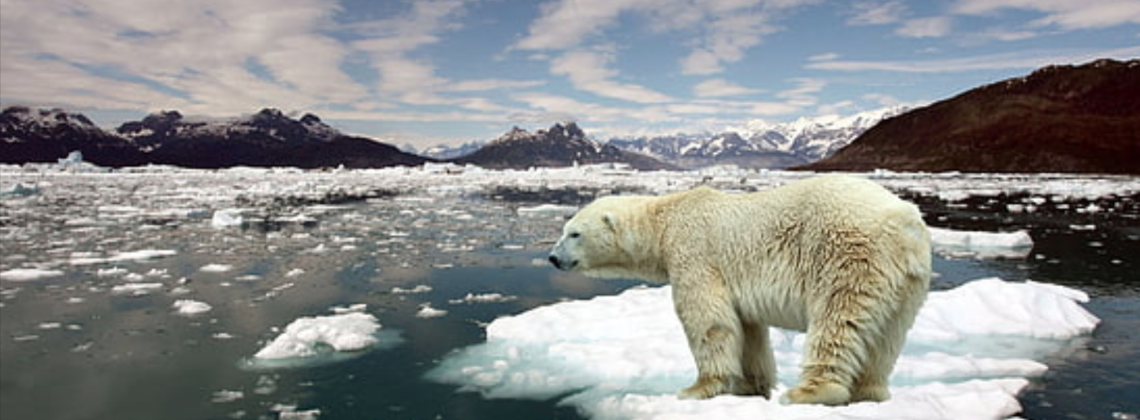

Love God, love the planet
By some accounts evangelical Christian resistance to environmentalism is rooted in doctrine. Some on the Left assume that theologically conservative Protestants believe humanity has the right to pillage nature. Some on the Right assume that evangelicals who think humans substantially contribute to climate change have sold out to political progressivism. In reality, theologically orthodox evangelicals have a robust doctrinal foundation for caring for the environment. Unfortunately, attacks on orthodox doctrine and political polarization often subvert environmental advocacy.
Perceived antipathy between evangelicals and environmentalism is nothing new. It was solidified in the popular imagination by selectively quoting James Watt, Ronald Reagan’s nominee for secretary of the interior. During a briefing before the House of Representatives on February 5, 1981, Watt stated, “I do not know how many future generations we can count on before the Lord returns.” Journalists combined that partial statement with speculation about the implications of Watt’s Pentecostal eschatology to argue that he was hostile to the environment.
The demonization of Watt—and by extension evangelicals—continued for decades. In 2005 journalist Bill Moyers claimed that Watt also said, “After the last tree is felled, Christ will come back.” Moyers subsequently apologized for repeating an obviously apocryphal quote, but such errors leave lasting damage. The strawman created to enable rhetorical conquest sometimes comes to life. Furthermore, Moyers’s apology to Watt rings hollow because he elsewhere argued that Christians who believe in Christ’s return—especially those who affirm the “rapture”—must be opposed to environmentalism.
In reality, interest in environmental ethics among evangelical and fundamentalist Christians ebbs and flows with the prevailing public discourse, which tends to follow the ups and downs of the economic cycle. Theologically conservative Protestants have not ignored the issue, nor have they consistently opposed environmental protections. They have, however, tended to favor conservation rather than preservation of creation—a perspective that can more easily be grounded in orthodox Christian doctrine.
There are environmental proposals that theologically conservative evangelicals cannot support in good conscience. Rather than attacking evangelicals for their beliefs, however, committed environmentalists would do better to show how proposed solutions to environmental degradation align with the historic doctrines of Christianity.
For example, the first chapter of the Bible makes it clear that creation is good. God himself declares the value of creation seven times in that brief account. It is true that humanity was given “dominion” over creation, even called to “fill the earth and subdue it.” Yet dominion is not a license to abuse creation, but to “work it and keep it.” God never gives up ownership of creation but requires the faithful to pursue the common good wherever they live. This foundation opens the door to many earth-positive proposals.
Yet anti-human advocacy among some environmentalists is deeply concerning for many evangelicals. On the fringe, ahumanists like Patricia MacCormack argue for “the cessation of reproduction towards the end of the human as a parasitic detrimental species.” Even mainstream environmentalists, like Jane Goodall, openly argue that a drastic reduction of human population is necessary for the well-being of the environment. Given the creational mandate to “be fruitful and multiply,” there is a real conflict between some environmentalists and evangelicals about the goodness of humanity and our place within the created order.
Such doctrinal conflict is sometimes openly encouraged by environmentalists. For example, Paul Ehrlich’s 1967 best-seller The Population Bomb calls on Roman Catholics to lobby against the prohibition of birth control. Lynn White, Jr. famously called for Christians to become more pantheistic, rejecting an orthodox view of God, for the sake of the environment. One of the essential traits of conservative evangelicalism is a desire to “contend for the faith that was once for all delivered to the saints.” In other words, doctrinal stability, especially consistency with the text of the Bible, is a primary goal for most evangelicals. Therefore, calls to change doctrine are rightly viewed as an attack on the faith itself.
Furthermore, the turn toward deconversion or theological confusion among some self-described Christian environmentalists justifies fears that to be concerned about the environment leads to compromise of the faith. As historian Mark Stoll demonstrates, many of the leaders of the American environmental movement were raised as Christians and later abandoned the faith. Historian Evan Berry notes that much of the vocabulary of the early movement was borrowed from Christian theology, especially language “related to salvation and to the goodness of creation.” Thus, in some cases “salvation” is described as coming through experiencing God in nature, rather than through Christ’s atonement. These are red flags for evangelicals concerned about preserving doctrinal fidelity.
Even if theological concerns were eliminated, political polarization creates an additional barrier for many evangelicals. The first Earth Day in 1970 was a bipartisan event, yet environmentalism became left-coded in the United States. The 1972 Rockefeller report, published by the Commission on Population Growth and the American Future, tied environmentalism to advocacy for government-funded abortion. At just that moment, evangelicals were shifting their perception on abortion to join Roman Catholics in what we now call a prolife position. So here the conservative theological and political streams overlapped within the Religious Right. Environmentalism became a left-coded issue to be opposed as part of the greater culture war.
This polarization continues today. The assumption among some evangelicals is that concern about human contribution to climate change is necessarily politically progressive. The late arch-conservative Roger Scruton is proof that this simply is not so. Yet the lumping of all progressive causes, including climate change, into one gelatinous whole only makes resistance to environmental activism more comfortable. Environmentalists tell evangelicals that caring about the environment requires supporting abortion, same-sex marriage, and a host of other seemingly unrelated causes that overtly conflict with Christian doctrine. It’s easier just to believe them.
Yet evangelicals can’t allow political discomfort to dissuade them from pursuing robust environmental ethics. The strength of doctrine compels pursuing real solutions to real problems for the sake of the common good. Still, doctrine will also often require selectivity about proposed solutions to environmental problems. Put simply, for believers Christianity will always define their environmental concern.
This complex responsibility is nothing new. In the same sentence in which James Watt expressed uncertainty about the number of generations remaining on earth, he declared his sense of environmental responsibility: “We have to manage with skill to leave the resources for future generations.” Many will disagree with his methods, but he was not hostile to the environment. For evangelical Christians, caring for creation is simply another way of “making the best use of the time” while we await the end of history. Concern for the well-being of the environment, though it may look different, should remain part of the expression of evangelical faith.
Andrew Spencer (PhD, Southeastern Baptist Theological Seminary) is an associate editor for The Gospel Coalition. He is author of Hope for God’s Creation: Stewardship in an Age of Futility (B&H Academic, 2023). He is an elder at Crosspointe Church in Monroe, MI.
Thank you for adding the context of Watt’s statement about the Lord returning. Note that when he made that statement, the mainstream media (and publications like Sojourners) included only the first part to give the impression that he didn’t believe wise stewardship was necessary. The first person out of the gate to present the comments in a false context was Coleman McCarthy of the Washington Post, a good friend of Jim Wallis. Then the other publications joined and given that the entire transcript was available to the media at the time, the omission was deliberate because the media wanted to present a false picture that fit with their narratives.
When you had his first quote at the beginning of the article, I wrongly believed that you were about to do the same thing, given that most people on the masthead of this publication are partisan Democrats. I am glad to have been wrong.
Timothy Terrell and I had a paper in 2003 in the Journal of Markets and Morality on the concept of stewardship and economic thinking. Given the politics of the Current staff and its supporters, I would expect most readers to be hostile to the article (without reading it or trying to address its points without using narrative-driven insults). But I am posting it, anyway:
https://www.marketsandmorality.com/index.php/mandm/article/viewFile/463/453